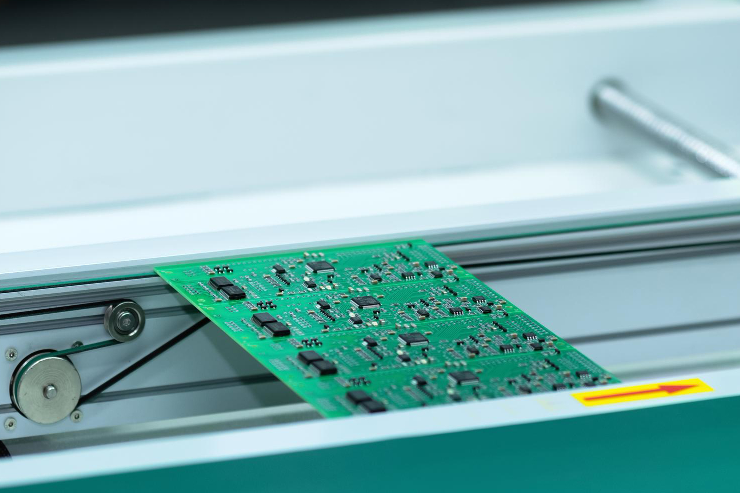Breaking Down the Future: Biodegradable Plastics in Injection Moulding
- josh61940
- Jun 30, 2025
- 3 min read
Innovations In Sustainable Materials And The Future Of Eco-Friendly Manufacturing

As sustainability becomes a growing priority across all industries, many businesses are looking for ways to reduce their environmental impact; starting with the materials they use. In the world of plastic injection moulding, one exciting development is the rise of biodegradable plastics.
At Amey Plastics, we’re passionate about staying at the forefront of sustainable manufacturing. In this blog, the team explore how biodegradable plastics are shaping the future of injection moulding and what that means for innovative, eco-conscious production.
What Are Biodegradable Plastics?
Biodegradable plastics are materials that can break down naturally in the environment through the action of microorganisms. Unlike traditional plastics, which can persist for hundreds of years, biodegradable plastics decompose more quickly under the right conditions, leaving fewer long-term residues behind.
They’re typically made from:
Plant-based sources (e.g. corn starch, sugarcane, cellulose)
Microbial fermentation products (like PHAs)
Blended materials that combine biodegradable polymers with traditional resins
Not all biodegradable plastics are created equal, some break down in industrial composting facilities, while others degrade under natural conditions.
Innovative Biodegradable Materials in Injection Moulding
Here are some of the most promising biodegradable plastics being used or explored in injection moulding:
PLA (Polylactic Acid)
Derived from corn or sugarcane
Suitable for food packaging, consumer products and some medical applications
Rigid and clear, but not ideal for high-heat or heavy-load uses
PHA (Polyhydroxyalkanoates)
Created through microbial fermentation
Fully biodegradable in both marine and soil environments
Offers better flexibility and heat resistance than PLA
PBAT (Polybutylene Adipate Terephthalate)
A biodegradable polyester often blended with PLA
Used for flexible items like bags and agricultural films
Starch-Based Plastics
Often blended with other biodegradable polymers
Cost-effective and commonly used in disposable products
Challenges in Using Biodegradable Plastics
While biodegradable plastics are exciting from an environmental perspective, there are a few practical challenges to keep in mind:
Performance trade-offs: Many biodegradable materials are less durable or heat-resistant compared to traditional plastics.
Processing requirements: Some require special temperatures or conditions during moulding.
Cost: Biodegradable plastics are often more expensive, though prices are coming down as adoption increases.
Composting infrastructure: Some materials require industrial composting to break down efficiently, something not yet widely available in many regions.
At Amey Plastics, we work with our customers to evaluate whether biodegradable options make sense for their product’s design, lifecycle and sustainability goals.
Applications for Biodegradable Plastics
Biodegradable materials are ideal for:
Single-use or short-life products (e.g. plant pots, food containers, cutlery)
Promotional items and giveaways with a limited lifespan
Compostable packaging where disposal in food waste streams is encouraged
Sustainable product lines targeting eco-conscious consumers
As material innovations continue, we expect to see biodegradable plastics become more mainstream, especially in consumer goods, agriculture, healthcare and packaging.
Amey Plastics: Supporting Sustainable Material Innovation
We’re committed to helping our customers explore sustainable alternatives without compromising quality. Whether you're interested in testing biodegradable plastics, incorporating recycled materials or reducing your carbon footprint, we’re here to guide you through the possibilities.
Biodegradable plastics offer an exciting path forward for brands that want to reduce environmental impact and align with eco-conscious values. While they’re not a one-size-fits-all solution, they can play a vital role in sustainable product design and responsible manufacturing.
Want to explore biodegradable materials for your next project?
Contact the Amey Plastics team to discuss sustainable plastic solutions tailored to your goals. Call us 01730 266 525 or email sales@ameyplasticsltd.co.uk.






Comments